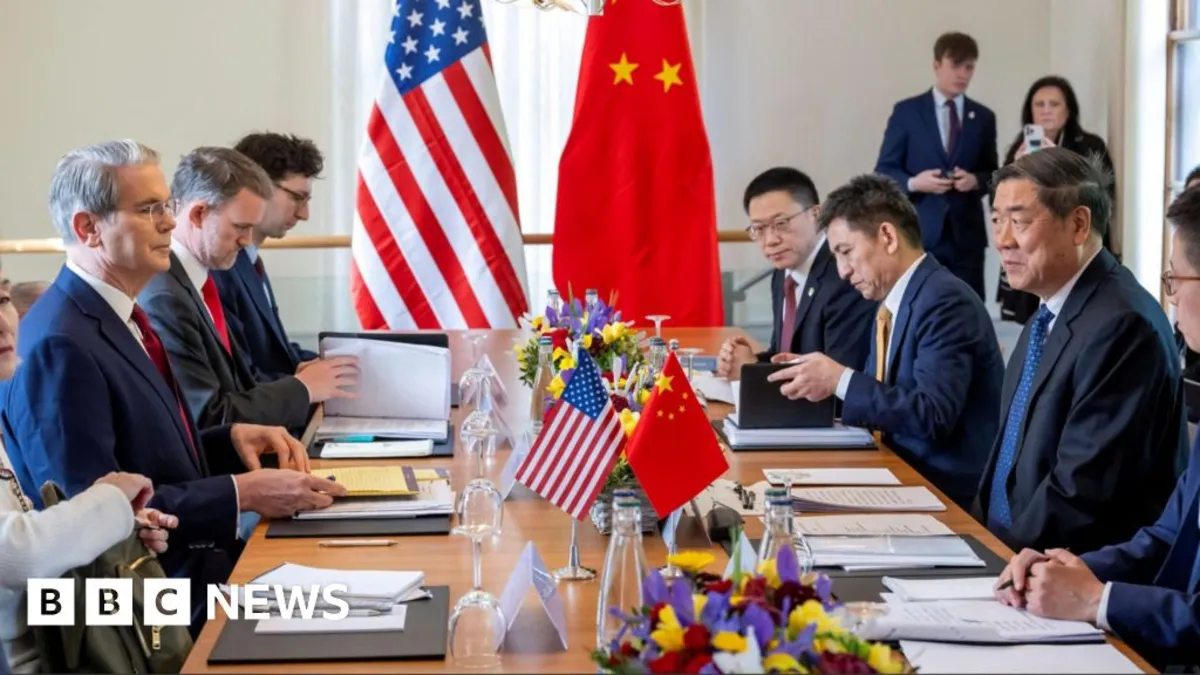
The United States and China are set to commence a new round of critical discussions on Monday, with rising expectations that the two largest economies in the world may agree to a 90-day extension of their current trade war truce. These pivotal meetings are taking place in Sweden, with Treasury Secretary Scott Bessent leading the US delegation and Vice Premier He Lifeng representing China. The timing of these discussions is significant, occurring just hours after US President Donald Trump announced a framework for a tariffs deal with the European Union.
The existing 90-day truce between the US and China, which facilitated a temporary reduction of tariffs on each other's goods, is scheduled to expire on August 12. Since President Trump returned to office in January, both nations have implemented import levies on each other, exceeding 100%. This truce was established following earlier high-level meetings in Geneva and London earlier this year, aimed at easing trade tensions.
Recently, Bessent expressed optimism about the negotiations with China, indicating that they are in a "very good place." Reports from the Hong Kong-based South China Morning Post suggest that both nations are leaning towards extending the truce by another three months. This potential extension could play a crucial role in stabilizing global trade dynamics.
In a significant development, the Financial Times reported that the US has frozen restrictions on technology exports to China to facilitate smoother trade discussions and assist Trump in securing a meeting with President Xi Jinping later this year. The focus has been on technology exports, particularly chips used in artificial intelligence (AI), which have emerged as a contentious issue in the ongoing trade dispute. US security officials have raised alarms over the potential use of advanced US chips by the Chinese military and their implications for innovation competition.
The BBC has reached out to the US Treasury and the Commerce Department, as well as the Chinese embassy in Washington, for comments on the unfolding situation. The latest round of US-China talks follows recent agreements struck by Washington with both the EU and Japan in the past week.
On Sunday, President Trump, alongside European Commission President Ursula von der Leyen, announced a framework for a trade agreement, effectively resolving a prolonged standoff between two of the globe's largest economic partners. In addition to this agreement, Trump disclosed that a massive trade deal with Japan has been finalized, where Japan is expected to invest $550 billion in the US. Under this agreement, Japanese goods entering the US will face a 15% tax, significantly lower than the 25% tariff previously threatened by Trump.
The US has also negotiated tariff agreements with the UK, Indonesia, and Vietnam. Notably, the UK has secured the lowest US tariff rate at 10%. While no major breakthroughs are anticipated from the upcoming US-China discussions, the possibility of extending their truce has sparked hope that global trade will remain shielded from new tariff disruptions.